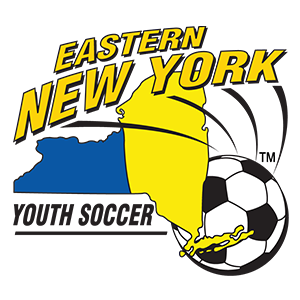By Tim Bradbury, Director of Coaching Instruction, Eastern New York Youth Soccer Association

I have spent the last 20 years in the USA working as a coach and getting as much education and experience as possible. I have coached players from five years of age through 26 years of age and continue to coach all age ranges to this day. I have coached in big clubs, in little clubs and all sizes in-between. I have worked with players from all types of cultural background and economic means. I have coached thousands of players of all different abilities and all at different points in their developmental pathway. Throughout this journey, there have been some wonderfully positive moments and shining examples of the human spirit at its best and, unfortunately, some negative ones as well.
Far too often the negative moments are driven by one or more of the following issues:
1) Overly competitive parents who believe that winning is the best judge of the level of development.
2) Coaches, clubs and parents desperate to get to the next buzz word – academy, elite, premier so they can tell others how good they are rather than simply concern themselves with the idea of, "Can my child develop against this level of competition and in this environment?"
3) Coaches, clubs and parents demanding bigger numbers of the field, so their 7-year-old can play the real game (11v11) rather than the developmentally appropriate 4v4 game that they have a chance of understanding
4) Players on so many teams or playing so many sports that the idea of TEAM and the wonderful human traits it can foster (discipline, self-sacrifice, communication, reliability, dealing with adversity) have been diminished or more truthfully obliterated.
I was recently asked by the parent of a young 3-year-old child if I could explain the pitfalls they should avoid if they wanted their child to have a long, FUN developmentally appropriate journey in soccer, one that might help them become the best player and person they could possibly become. Typically, I just get told my kid is the next Messi and how do they get on the best team, so I was jarred into thinking seriously about my answer. Shared below are the things I stressed:
a) Always concern yourself more with skills learned and FUN had than goals scored, and wins gained.
b) Find a team where the coach and other parents understand commitment and what being on a team means. One in which the simple concept of not letting your teammates down means the world.
c) Remember kids get physically and emotionally tired and that they can not be on too many teams at the same time.
d) Find a team with coach that treats their players as people first and athletes second.
e) Find a team with a coach who has the qualifications that show they have the knowledge to teach the game in a developmentally appropriate manner.
f) Never concern yourself with labels or titles, try and ensure your team play in a competitive league as local as possible and as long as possible.
g) Try and find a club with a top to bottom developmental plan, one that has coaches who work together, holds picnics and open days, one invested in holistic development.
h) Try to remember that mistakes are learning opportunities, that development is a journey and that learning to deal with adversity and a losing is probably a good thing!
i) Above all else remember always that the only words as a supportive parent you need to remember are, “I enjoyed watching you play today.”

